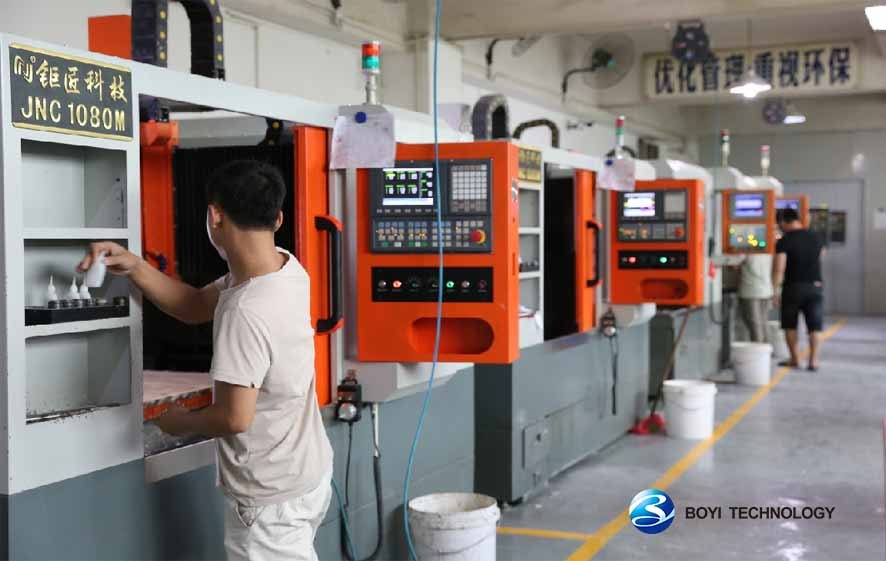Introduction
In the world of manufacturing, precision and efficiency are paramount. To achieve these goals, industries have increasingly turned to technology that offers both: Computer Numerical Control (CNC) machines. A CNC machine operator plays a crucial role in ensuring that these advanced machines operate smoothly, producing high-quality components with accuracy. This article explores the importance of a CNC machine operator, their job responsibilities, required skills, and the path to becoming one.
What is a CNC Machine?
Before diving into the role of a CNC machine operator, it’s essential to understand what a CNC machine is. CNC machines are automated tools used in manufacturing to cut, shape, or form material, usually metal, wood, plastic, or composites. They use computer programming to control the machine’s operations, which can include drilling, milling, turning, or grinding. These machines are highly accurate and capable of performing repetitive tasks with minimal human intervention.
CNC machines replace manual machines, increasing production efficiency and precision. The main types of CNC machines are:
- CNC Mills: Used for cutting and shaping materials.
- CNC Lathes: Designed for turning materials, typically cylindrical.
- CNC Routers: Primarily used for wood, plastic, and metal working.
- CNC Plasma Cutters: Utilized for cutting metals using plasma.
A CNC machine operator is responsible for ensuring these machines are functioning correctly and safely.
Role and Responsibilities of a CNC Machine Operator
A CNC machine operator is responsible for setting up, operating, and maintaining CNC machines. Their tasks may vary depending on the type of machine and the industry, but their core duties are similar across the board.
1. Machine Setup
One of the first and most critical responsibilities of a CNC machine operator is the setup. Before production can begin, the operator must set the machine with the appropriate tools, materials, and settings. This involves selecting the right type of tool and ensuring the material is securely positioned on the machine.
During setup, the operator may also need to input the machine’s program, which dictates the exact movements the machine will make. They must ensure that the program is correctly loaded and that it matches the required specifications for the task at hand.
2. Operating the CNC Machine
Once the machine is set up, the operator monitors the entire process. They ensure that the machine runs as intended, making real-time adjustments to speed, tool position, or material placement if necessary. This requires a deep understanding of the machine’s functions and the ability to troubleshoot any problems that arise.
3. Quality Control
CNC machine operators are also responsible for checking the quality of the components produced. They ensure the product meets the required specifications, which may involve measuring components using various tools, such as calipers, micrometers, and gauges. Operators must catch any defects early to prevent large-scale waste or errors in production.
4. Maintenance and Troubleshooting
Regular maintenance is crucial to keep CNC machines operating at optimal levels. Machine operators may perform basic maintenance tasks, such as cleaning, lubricating, and replacing worn-out parts. They must also troubleshoot any mechanical or programming issues that could cause production delays. For more serious issues, they may need to call in a specialized technician.
5. Safety Protocols
Safety is a critical concern in any manufacturing environment. CNC machine operators must follow safety guidelines to protect themselves and their coworkers from accidents. This includes wearing proper personal protective equipment (PPE), such as safety glasses and ear protection, and ensuring that the work environment is free of hazards.
Skills and Qualifications Required for a CNC Machine Operator
To be effective in their role, CNC machine operators must possess a combination of technical and soft skills. Below are some of the most important skills and qualifications.
1. Technical Skills
- Machine Operation: Operators must be adept at using CNC machines and understand their various components, including the control panel, tool changers, and workpiece holders.
- Blueprint Reading: A solid understanding of blueprints and technical drawings is essential for interpreting specifications and translating them into machine settings.
- Computer Skills: CNC machines are computer-controlled, so operators need to have basic computer literacy and understand how to load and modify programs.
- Knowledge of Tools and Materials: Operators must know which tools and materials are appropriate for specific jobs and understand how to change and maintain them.
2. Attention to Detail
CNC machine operators must have a keen eye for detail, as even a small error in programming or setup can lead to defective parts. The operator must be able to closely monitor the production process and make adjustments as necessary.
3. Problem-Solving Skills
When machines malfunction or the product does not meet specifications, CNC operators need to troubleshoot and resolve the issue efficiently. This requires strong problem-solving skills and the ability to think critically under pressure.
4. Mathematical Skills
Since CNC machines require precise calculations for dimensions, tolerances, and machine settings, operators need to be comfortable with basic math, including geometry, algebra, and trigonometry.
5. Physical Stamina and Strength
CNC machine operators often need to stand for long periods and handle heavy materials. Physical strength and stamina are necessary to lift and move materials and operate the machines without fatigue.
6. Communication Skills
Good communication is essential for CNC operators, as they often work in teams. They must be able to communicate effectively with engineers, supervisors, and quality control personnel to ensure that projects meet deadlines and specifications.
Training and Education for CNC Machine Operators
Becoming a CNC machine operator typically requires a high school diploma or equivalent. While not always mandatory, completing a technical or vocational training program in machining, manufacturing, or a related field can greatly enhance job prospects.
1. Technical Training
Many vocational schools and community colleges offer specialized programs in CNC machining. These programs cover topics such as CNC machine operation, computer-aided design (CAD), blueprint reading, and machining techniques.
2. On-the-Job Training
In addition to formal education, most CNC machine operators receive hands-on training in the workplace. This training allows them to become familiar with specific machines and processes used by their employers. It can take several months to become proficient, during which time new operators typically work under the supervision of an experienced technician.
3. Certifications
Some operators pursue certification to demonstrate their expertise. Organizations like the National Institute for Metalworking Skills (NIMS) offer certification programs in areas such as CNC setup, machining, and programming. Certifications can improve job prospects and lead to higher salaries.
Career Outlook and Salary
The demand for skilled CNC machine operators continues to grow as industries such as automotive, aerospace, and medical device manufacturing expand. According to the U.S. Bureau of Labor Statistics, the median annual wage for CNC machine operators in 2023 was around $47,000, with the potential for higher wages based on experience, specialization, and location.
Job opportunities for CNC operators are expected to remain strong, particularly in industries that rely heavily on precision manufacturing.
Conclusion
CNC machine operators play a vital role in modern manufacturing. They are the ones who ensure that CNC machines operate efficiently, safely, and precisely, producing high-quality components that meet the exact needs of the industry. Their expertise in machine setup, operation, maintenance, and quality control makes them indispensable in the manufacturing process. As technology evolves, the demand for skilled CNC machine operators will continue to grow, offering opportunities for those looking to build a career in this essential field.



